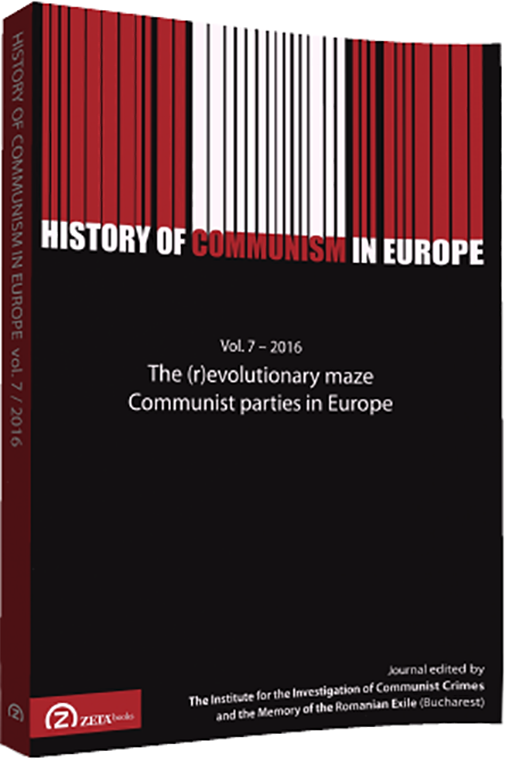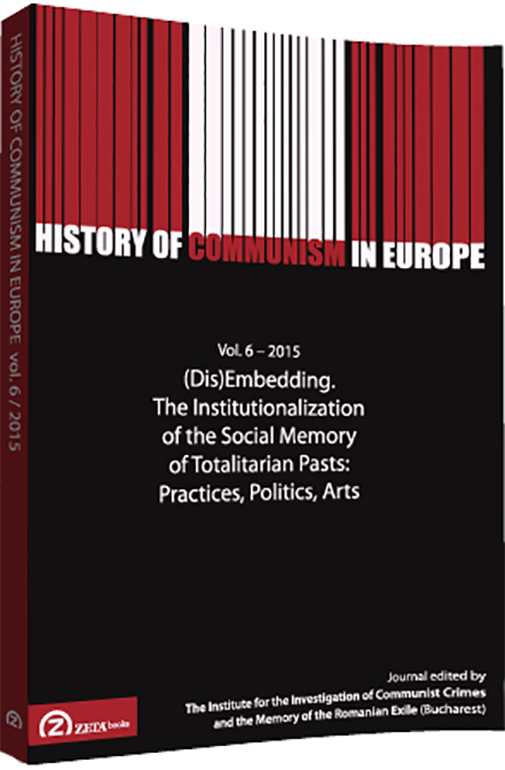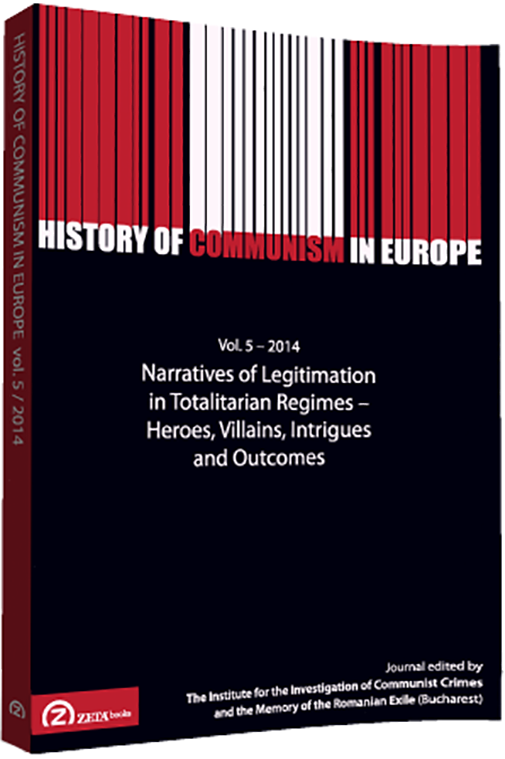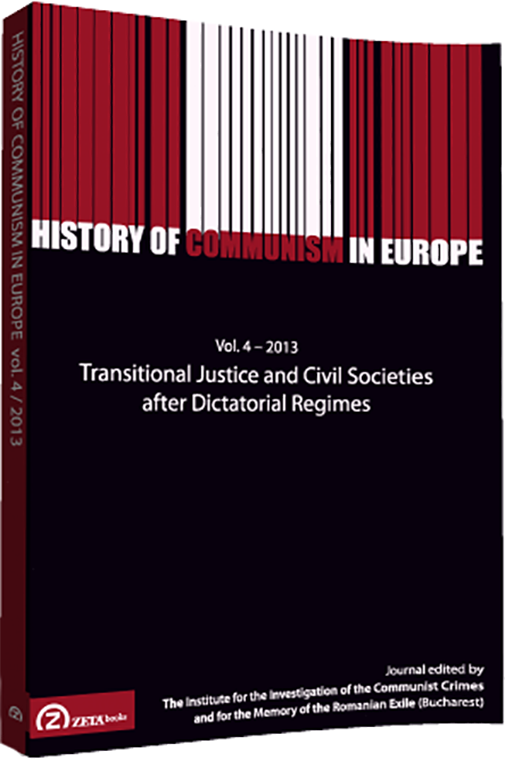History of Communism in Europe: Vol. 7 / 2016 | Dalia Bathory, Various Authors

Detalii History of Communism in Europe:
History of Communism in Europe: - Disponibil la carturesti.ro
Pe YEO găsești History of Communism in Europe: de la Zeta Books, în categoria Reviste.
Indiferent de nevoile tale, History of Communism in Europe: Vol. 7 / 2016 | Dalia Bathory, Various Authors din categoria Reviste îți poate aduce un echilibru perfect între calitate și preț, cu avantaje practice și moderne.
Preț: 45 Lei
Caracteristicile produsului History of Communism in Europe:
- Brand: Zeta Books
- Categoria: Reviste
- Magazin: carturesti.ro
- Ultima actualizare: 27-10-2025 01:24:43
Comandă History of Communism in Europe: Online, Simplu și Rapid
Prin intermediul platformei YEO, poți comanda History of Communism in Europe: de la carturesti.ro rapid și în siguranță. Bucură-te de o experiență de cumpărături online optimizată și descoperă cele mai bune oferte actualizate constant.
Descriere magazin:
ARGUMENTDalia BATHORY: "Talkin’bout a Revolution"Abstract: The proclamation of liberal democracy as the absolute winner of the Cold War and the emergence of “prosecutorial” history after the fall of the Eastern Communist Bloc seemed to have established a certain path for researchers with regard to post-war dictatorships in Central and Eastern Europe. A closer look at the meaning of “revolution” as well as at new research efforts reveal strong connections between the East and the West during that time, that determined changes in the pattern and style of the scientific discourse analysing the post-war decades.I. “MAKE – BELIEVE”. COMMUNIST PROPAGANDA AND ITS IMPACT ON SOCIETYEnis SULSTAROVA: “Eurocommunism is Anti-Communism”: The Attitude of the Party of Labour of Albania about Western Communism in the early 1980sAbstract: Following the rift with China, Albania found itself on a lonely road towards pretending to protect the purity of the Marxism-Leninism in Europe. Although diplomatic relations with the West were restricted only to trade, the Albanian Communist leader, Enver Hoxha, was interested in recent developments inside Western Communist parties. Through Eurocommunist theorizations, the parties in Italy, France and Spain abandoned revolutionary aims, incorporated democracy in their ideology and tried to build electoral coalitions with socialist parties and other left-wing forces. By contrast, the Albanian Enver Hoxha considered that Communist revolution was still possible in the world, and the Communist parties still acted as Leninist revolutionary vanguards. From this perspective, he denounced Eurocommunism as a continuation of “revisionism”. This paper will present the attitude of the Party of Labour of Albania about Western Communism by placing it in its historical context and framing it in light of broader debates inside the European Communist movement.Klejd KELLICI, Ermira DANAJ: Promoting Equality, Perpetuating Inequality: Gender Propaganda in Communist AlbaniaAbstract: During Socialism, the “women’s issue” was among the key state policies in Albania. The emancipation issue followed a pattern similar to other socialist countries, called the “women’s emancipation model”. It was part both of the state rhetoric and the general need to include women in the “socialist transformative processes”. This involved policies that supported women\'s participation in the productive labour force, as well as the introduction of new laws that promoted the equality between men and women.A reconfiguration of gender roles and the gender division of tasks occurred during socialism. In Albania, this process had two distinct phases. From 1944 onward women\'s emancipation was thought of in terms of their participation as an additional force in the post-war reconstruction effort, even though sporadic and aligned with the primary political needs of the regime. The second phase occurred during the \'60s following the Party’s directive “For the complete emancipation of women” (1967). This phase was considered strategic as it coincided with the efforts to industrialize the country and to eventually fully centralize the control over the territory.This paper aims to investigate the entanglements between gender propaganda and gender practices. For this purpose, we analyse various party speeches and policies as well as examples of “heroines” and propaganda movies. A thorough analysis of...

Produse asemănătoare
Produse marca Zeta Books

Early Modern Philosophy of Technology | Robert R.A. Arnautu
![]() carturesti.ro
carturesti.ro
Actualizat in 27/10/2025
43 Lei

History of Communism in Europe: Vol. 7 / 2016 | Dalia Bathory, Various Authors
![]() carturesti.ro
carturesti.ro
Actualizat in 27/10/2025
45 Lei

History of Communism in Europe: Vol. 6 / 2015 | Dalia Bathory, Various Authors
![]() carturesti.ro
carturesti.ro
Actualizat in 27/10/2025
44 Lei

History of communism in Europe: Vol. 5 / 2014 | Dalia Bathory, Various Authors
![]() carturesti.ro
carturesti.ro
Actualizat in 27/10/2025
44 Lei

History of Communism in Europe: Vol. 4 / 2013 | Dalia Bathory, Various Authors
![]() carturesti.ro
carturesti.ro
Actualizat in 27/10/2025
44 Lei
